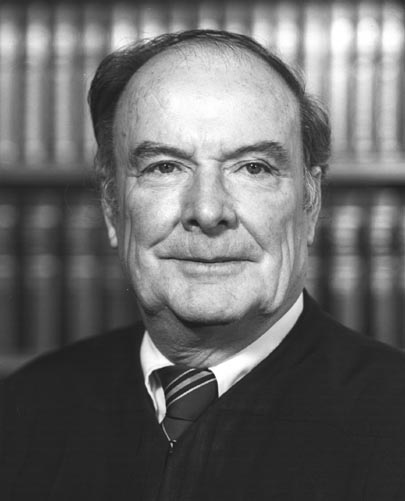James Skelly Wright (1911–1988) was a highly respected federal judge who presided over many important cases, including those addressing loyalty oaths. He was perhaps best known for his impact on civil rights.
Wright, who was born in New Orleans and spent his early years there, earned his undergraduate degree in 1931 from Loyola University and his law degree in 1934 from Loyola University Law School. From 1949 to 1962, he served as a judge on the U.S. District Court for the Eastern District of New Orleans. In 1962 Wright was appointed to the District of Columbia Circuit Court of Appeals, where he served until 1986. He served as chief judge of the D.C. Circuit from 1978 to 1981 and was a judge on the Temporary Emergency Court of Appeals of the United States from 1981 to 1987, serving as chief judge from 1982 to 1987.
Wright was insrumental in desegregating New Orleans
In the area of civil rights, Wright was instrumental in enforcing the desegregation of public facilities in New Orleans, including the Orleans Parish public schools. As a result, he and his family incurred the wrath of New Orleans uptown society, the business community, and the local White Citizens Council. Not only was Wright ostracized by the white community, but Louisiana senators blocked his advancement in the Fifth Circuit. Wright suffered cross burnings on his lawn and anonymous phone calls to his unlisted number. He also had to have 24-hour protection by U.S. marshals. One of Wright’s last acts as a district court judge was an unsuccessful attempt to desegregate Tulane University in 1962.
The same year, President John F. Kennedy appointed Wright to the District of Columbia Circuit Court of Appeals, which enabled him to leave New Orleans with dignity. After his elevation to the D.C. circuit court, Wright sought in Hobson v. Hansen (D.D.C. 1967) to end de facto segregation in the D.C. public schools. He ordered that educational resources be equalized throughout the District.
Wright ruled in some important First Amendment cases
In 1969 Wright participated in a special three-judge federal court panel that ruled that the statute on which the loyalty oath requirement for federal employees was based was unconstitutionally vague and violated not only the Fifth Amendment’s due process provision, but also Article VI’s ban on “odious test oaths” (Stewart v. Washington [D.D.C. 1969]).
A few years later, Wright was the only member of the three-judge panel of the District of Columbia Circuit Court of Appeals to dissent from the injunction that the court issued to stop the publication of the Pentagon Papers. The Supreme Court vindicated Wright’s view in its decision in New York Times Co. v. United States (1971).
In other well-known cases, Wright authored opinions in Bundy v. Jackson (5th Cir. 1981), a Title VII claim for sexual harassment, and Hohn v. United States (5th Cir. 1986), a lawsuit by Japanese Americans seeking reparations for World War II internment.
This article was originally published in 2009. Martin Gruberg was President of the Fox Valley Civil Liberties Union in Wisconsin.

